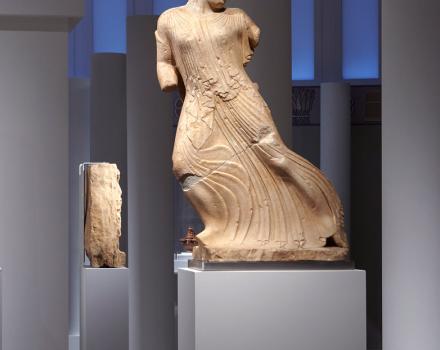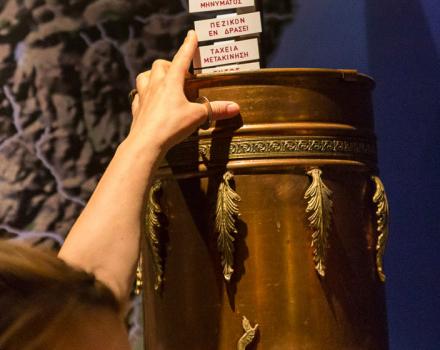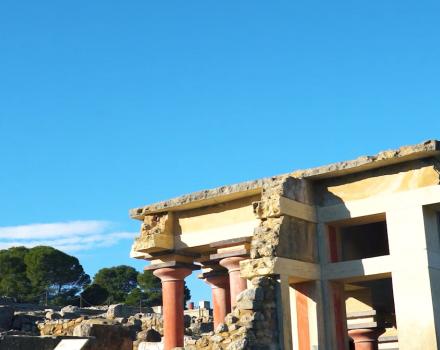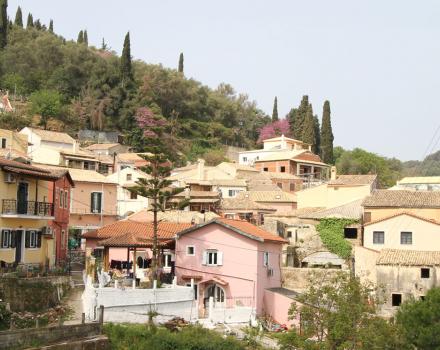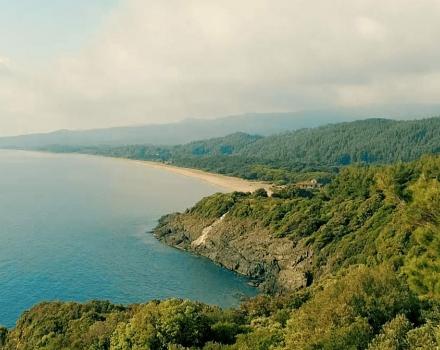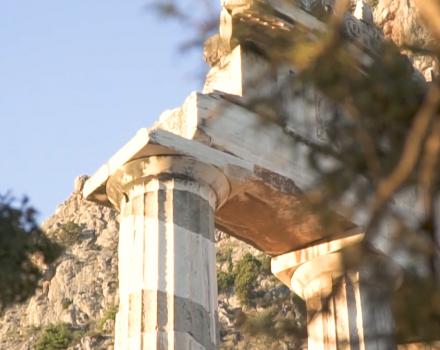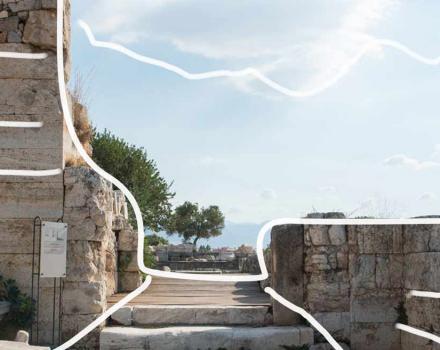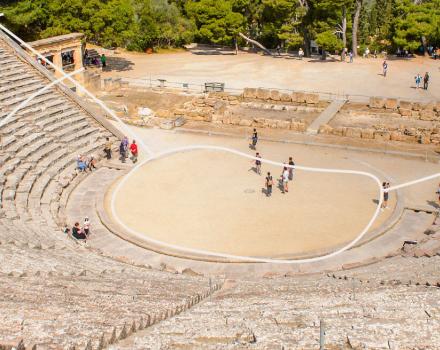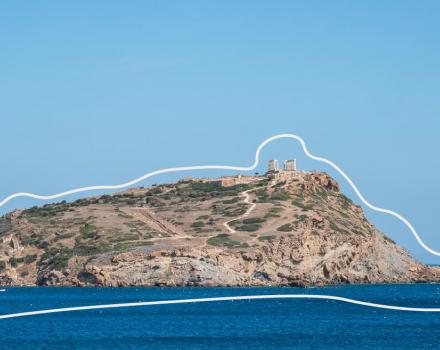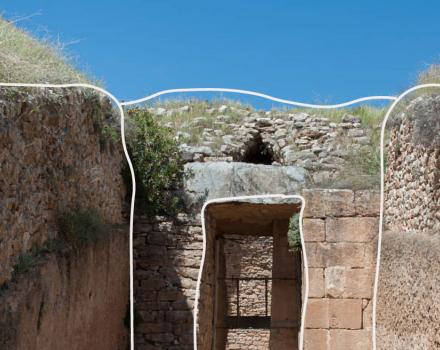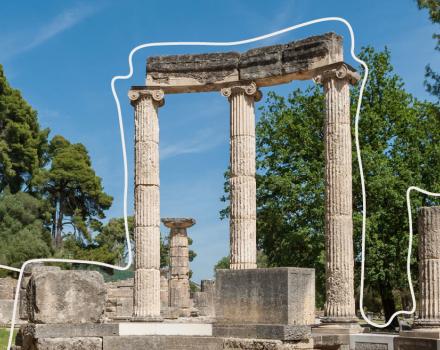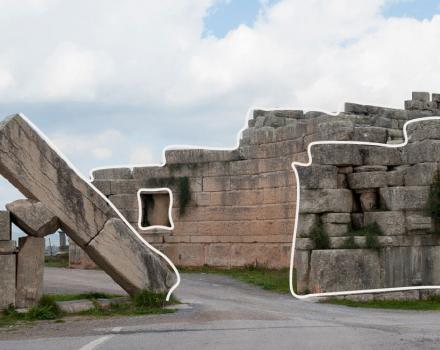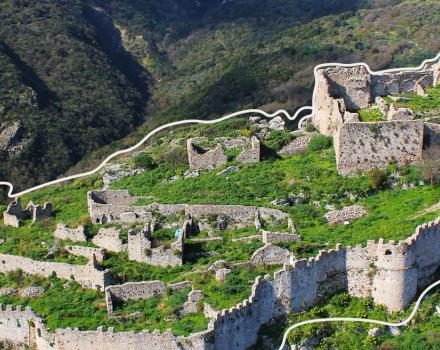Beer was not unknown in prehistoric Greece, according to a new research by the School of History and Archaeology of the Aristotle University of Thessaloniki. Strong evidence from a study of archaeobotanical remains indicate that the inhabitants of prehistoric Greece, apart from wine which was the dominant alcoholic drink of that time, produced beer since the Bronze Age. Shortly after the Egyptians, who, according to the oldest testimonies, already knew the art of beer-making from the middle of the 4th millennium B.C., as the Sumerians did as well, almost from the 3rd millennium B.C. It is, however, possible that beer has traveled to Greece from the Near East.
The archaeological finds indicating the presence of prehistoric beer in Greece were dated back to the end of the 3rd - early 2nd millennium B.C. These are ancient remains of herbs, sprouted cereal grains and fragments of ground cereal grains along with small masses, which are interpreted as brewing residues and found in the interior of the houses of two Bronze Age settlements: Archontiko, Pella, Argissa and Thessaly.
Research program
PlantCult: Investigating the Food Cultures of Ancient Europe (ERC)
Loyal to their favorite wine, Greeks of historical times believed that beer was a drink of foreign people.

The study of the archaeobotanical remains is conducted under the PlantCult (ERC) research project implemented in AUTh (since April 2016) and funded by the European Union under Horizon 2020 through the European Research Council Consolidator Grant, Ga. 682529. The new data was recently presented in an article by Ms. Sultana-Maria Valamoti, Associate Professor at the School of History and Archaeology of AUTh and head of the above program. Titled “Brewing beer in wine country? First archaeobotanical indications for beer making in Early and Middle Bronze Age in Greece”, the article was published in the journal “Vegetation History and Archaeobotany ".
In Archontiko, the sprouted cereal seeds appear to be frail and are preserved in bad condition, probably due to malting and charring circumstances. In Argissa, where a rich amount of germinated seeds, mainly wheat, and barley, was found, the seeds are preserved in a much better condition. These finds could correspond to malt preparation, as is suggested for similar finds from Middle Bronze Age Serbia. The cereal masses and fragments from Archontiko probably represent more advanced brewing stages. In other words, they could be the result of ground malt before or after mixing with water, while the ground cereals would be added before the fermentation process as an additional source of starch, corresponding to the process followed in the Near East and Egypt.
"The art of making beer arrived in Greece around the 3rd millennium B.C. , after the Egyptians who drank beer from the 4rd millennium B.C. and the Assyrians who followed them after a decade.

The production and consumption of alcoholic drinks in the Prehistoric Era and their connection with significant social and economic developments are an important field of archaeological and anthropological research. As far as wine is concerned, its production and consumption in the Aegean world during the Bronze Age is confirmed by a plethora of evidence, while also there is data to support that it is the oldest wine in Europe. Specifically, the study of archaeobotanical data and chemical analysis of ceramic residues from the Neolithic Settlement of Dikili Tash around 4000 B.C.
"Europe's oldest wine was made in the Neolithic settlement of Dikili Tash at Kavala around 4000 B.C., according to the analysis of charred grapes found there.

"Why in ancient Greek literature there is no mention of beer while the new evidence certify that its production was known in at least two prehistoric settlements in Macedonia and Thessaly?
Amongst the evidence confirming vinification process in prehistoric Greece, references from ancient texts are of great importance. But what about beer? Why do the ancient texts ignore beer since the art of its production was known in at least two prehistoric settlements? This is one of the questions that PlantCult (ERC) will try to answer. The program will also conduct a series of data collection experiments in order to investigate the production of prehistoric beer.
Interview with Sultana-Maria Valamouti,
Assistant Professor of Archeology, Aristotle University of Thessaloniki, TV100 Thessaloniki
